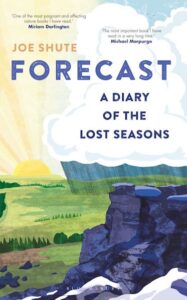 You can play no part but Pyramus; for Pyramus is a
You can play no part but Pyramus; for Pyramus is a
sweet-faced man; a proper man, as one shall see in a
summer’s day; a most lovely gentleman-like man:
therefore you must needs play Pyramus.
When William Shakespeare’s A Midsummer Night’s Dream was first performed (either privately as some sources record, or publicly, as do other) around the turn of the sixteenth century into the seventeenth, it is very likely indeed that the audience would have known exactly the sort of “most lovely gentleman” Peter Quince is trying – somewhat unsuccessfully – to convince the overly eager but comically thick Nick Bottom the character assigned to him for the performance of a play at the wedding celebration of Theseus and Hippolyta is. They would also have had a highly accurate image ready to mind of a summer’s day in England. After all, a summer’s day had been known to them – with all its expected weather, blooming of flowers, activities of animals, and so forth – to be the same all their lives as it had been in the lives of their parents, grandparents, and on into the distant past.
However such might not be able to be said of a similar audience today. Putting aside the now largely lost notion of a “most lovely gentleman,” a summer’s day as we may have experienced it in 2021 is not quite the same in regard to weather, plant and animal activity, and a range of other natural phenomena as it was in 2001, or 1961, or 1901. And as Joe Shute, keen observer of weather that he is, discovered in years of research into the subject, it’s becoming more and more different more quickly with each passing year.
He has collected his observations and discoveries in his new book Forecast; A Diary of the Lost Seasons. From “[d]affodils in December, frogspawn in November and summers so hot wildfires rampage across the northern moors,” Mr. Shute paints a very complex portrait of a land year by year becoming disjointed from a pattern of life that, while it has ever indeed been subject to change that was too slow and incremental to be noticed by walking shadows (verily, is there any meaningful metaphor for which Shakespeare did not provide the perfect words?) such as ourselves, is now occurring at a pace causing natural phenomena to become increasingly unrecognizable to us and dangerously challenging indeed to all the myriad forms of life that lack the tools we do to adapt – or at least attempt to – with sufficient rapidity; our much known and well-loved summer’s day quickly becoming a winter of discontent.
Available from:

